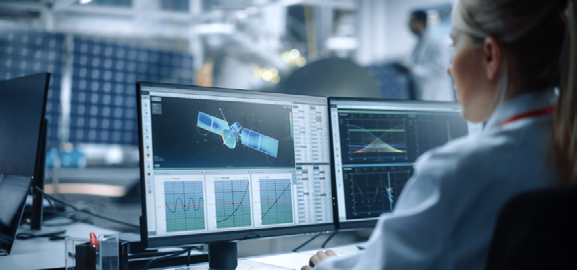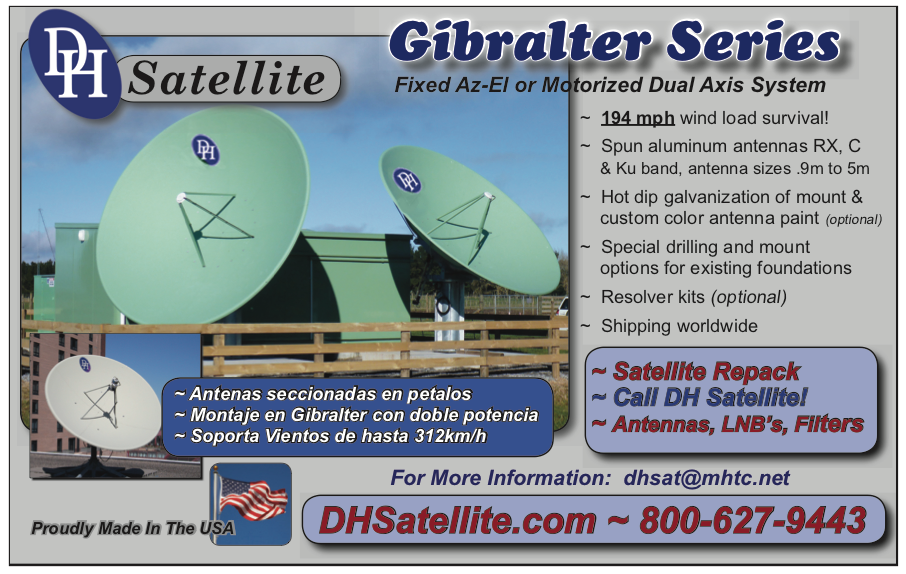The world has seen significant advances in small satellite (smallsat) technology, space awareness as well as tracking techniques in the last decade.

According to the Center for Strategic and International Studies, companies are rapidly evolving their operations to support government and commercial customers, as the potential impact of commercial space services grows. In the weeks leading up to Russia’s aggression toward the Ukraine, commercial analytics companies started picking up GPS interference signals across the Russian border. They later discovered that the jamming in eastern Ukraine was affecting the local cell towers, significantly altering UAV routes and impacting military surveillance operations.
Commercial capabilities preempted broader awareness and action by government actors. Since the war was kicked off, commercial, space-based capabilities have become a key tool in the embattled the Ukrainian military’s arsenal. While conflicts such as the one ongoing in Ukraine highlight the value of satellite-sourced data, the expansion of satellite populations to provide that data brings growing risks to space assets that are vulnerable to collisions and uncertainty in an increasingly crowded environment.
While these commercial entities supplement a nation state’s ability to protect its sovereignty, they are operating in an uncertain environment where the assets providing those capabilities could be under threat of retribution or the ever-looming threat of overlooked debris colliding with a satellite.
The Need For Better Tracking For Safer Space
We increasingly rely on space for essential human needs: from navigating conflict zones to finding land mines, combating drug trafficking, and providing data for Earth-science to enabling education in remote locations. Space is vital in every sense. While the commercialization of space continues to grow into a competitive marketplace, the congestion and likelihood of disruption increases. In order to account for the influx of satellites in space, there is a critical need for governments to start implementing viable policy solutions and companies to work toward a more transparent space environment.

Safe and responsible conduct in space is a concept being pursued by several entities across the globe, including companies developing capabilities for better event traceability on-orbit and working groups advising space actors on the enforceable policy options for space traffic management.
Consortium for Execution of Rendezvous and Servicing Operations have been endorsed by over 50 space operators, many in the space infrastructure segment.
The commercial space industry is building some foundation for operating norms in a different space domain than the one of 20 years ago. Still, it is doing so with little guidance from governments on the overarching policies and laws that will compound the industry’s norms. Without clear policy guidance and authority in place, it is left to companies with assets in space to decide how to best secure their spacecraft and also enable safer in-space operations such as refueling and docking.
Given the rapid increase of space activity worldwide and the current state of orbital debris in LEO, international space agencies and the scientific community agree that mitigation-only activities focused solely on prevention are insufficient to stabilize the orbital debris environment. Rather, to effectively address the orbital debris issue, a global mitigation effort is necessary. In addition to global partnerships on policy and enforcement, the gap in sufficient data needs to be remedied.
Currently, what we can see and track in space is primarily limited to the ground-based sensors, which face challenges such as weather, short transit times overhead and gaps between sensors on the ground, making it easy to lose track of objects. Today, however, several emerging technologies could track space assets not only from the ground, but also from space, which would unlock more persistent coverage of threats and higher resolutions.
There is also unprecedented collaboration globally across the commercial space segment. Even though there is a clear gap in regulatory authority, there are several efforts from governments to provide research, funding and partnership opportunities to cultivate an environment where the space ecosystem can thrive.
Space has inspired humans for centuries and continues to be a mystery while simultaneously challenging and providing for us. We need to ensure we take care of space as a part of our environment in order to keep enjoying the vast benefits on Earth.


Authors Özge Polson is the Director of Commercial Business Development at SCOUT Inc. and Sergio Gallucci is the Co-Founder and CTO at SCOUT Inc.
scout.space



